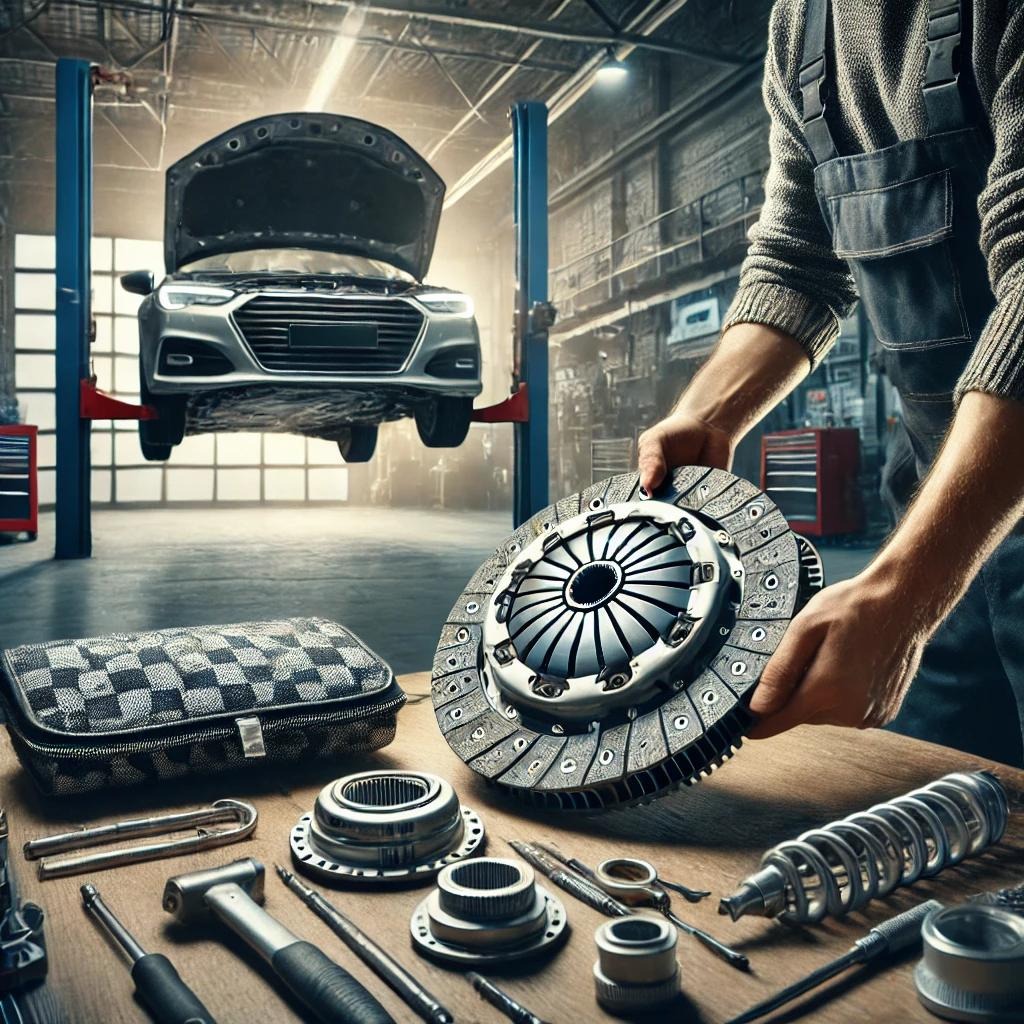Why Does My Clutch Smell Burnt? Causes and Solutions
Why Does My Clutch Smell Burnt? Causes and Solutions
If you've noticed a burning smell coming from your car, especially when using the clutch, it could be a sign of clutch wear or misuse. A burning clutch smell is not something to ignore—it could indicate excessive friction, overheating, or a failing clutch system.
At Andrews Car Centre in Lincoln, we specialize in clutch diagnostics, repairs, and replacements to keep your vehicle running smoothly. In this guide, we’ll explain why your clutch might smell burnt, what causes it, and how to prevent costly repairs.
What Does a Burning Clutch Smell Like?
🚨 If your clutch is burning, you'll notice a strong, acrid, and sharp smell—similar to burning rubber or hot brakes.
💡 It’s most noticeable when:
✔️ You’re driving in stop-start traffic or up steep hills.
✔️ You’ve been riding the clutch for an extended period.
✔️ Your clutch is slipping under acceleration.
📌 If this smell occurs frequently, your clutch may be wearing out faster than normal.
Common Causes of a Burning Clutch Smell
1. Riding the Clutch (Keeping Your Foot on the Pedal)
🚗 What happens?
- Pressing the clutch pedal slightly while driving prevents full engagement, causing excessive friction and heat buildup.
- This commonly happens in traffic jams, at traffic lights, or on steep inclines when drivers rest their foot on the pedal instead of using the handbrake.
🛠 How to prevent it:
✔️ Keep your foot completely off the clutch pedal when driving.
✔️ Use the handbrake on hills instead of balancing with the clutch.
2. Slipping Clutch (Clutch Worn or Losing Grip)
🚗 What happens?
- A worn or faulty clutch disc may fail to grip the flywheel properly, causing it to slip under load.
- This creates intense heat, leading to clutch material burning.
🔎 Signs of a slipping clutch:
✔️ High engine revs, but the car doesn’t accelerate as expected.
✔️ Struggling to pull heavy loads or drive uphill.
✔️ A burning smell, especially after prolonged use.
🛠 How to fix it:
🔧 A slipping clutch usually requires replacement—book an inspection at Andrews Car Centre before it worsens.
3. Heavy Towing or Carrying Heavy Loads
🚗 What happens?
- Vans, 4x4s, or vehicles towing trailers put extra strain on the clutch, leading to premature wear and overheating.
- If the clutch isn’t designed for high-torque loads, it may overheat and smell burnt.
🛠 How to prevent it:
✔️ Use lower gears for towing to reduce strain on the clutch.
✔️ Consider an upgraded heavy-duty clutch if towing frequently.
4. Frequent Stop-Start Driving (City Traffic)
🚗 What happens?
- Constant clutch use in traffic jams, junctions, or roundabouts can cause heat buildup.
- If you don’t fully engage the clutch when changing gears, it gradually wears out faster.
🛠 How to prevent it:
✔️ Use first gear smoothly and avoid unnecessary revving.
✔️ Anticipate stops and slow down gradually to reduce clutch engagement.
5. Low or Contaminated Clutch Fluid (Hydraulic Clutches)
🚗 What happens?
- Hydraulic clutches use clutch fluid to engage and disengage smoothly.
- If the fluid level is low, contaminated, or leaking, the clutch may partially engage, causing friction and heat.
🔎 Signs of clutch fluid issues:
✔️ A spongy or soft clutch pedal.
✔️ Difficulty selecting gears.
✔️ Fluid leaks under the car near the clutch pedal or gearbox.
🛠 How to fix it:
- Check clutch fluid levels and top up with the correct hydraulic fluid.
- If leaks persist, book a repair for the master or slave cylinder.
6. Worn Clutch Components (Pressure Plate or Flywheel Damage)
🚗 What happens?
- A worn pressure plate or damaged flywheel can cause poor clutch engagement, leading to heat and burning smells.
- This typically happens on high-mileage vehicles where clutch components have worn down over time.
🛠 How to fix it:
🔧 A full clutch replacement may be required, including the pressure plate and flywheel resurfacing.
When Should You Replace Your Clutch?
🚨 If you experience any of the following, your clutch may be near failure and need replacing soon:
✔️ Clutch slipping under acceleration (high revs, but slow speed).
✔️ Difficult gear shifts or grinding noises.
✔️ A stiff, spongy, or sticking clutch pedal.
✔️ Burning clutch smell occurring regularly.
💡 Ignoring these signs can lead to complete clutch failure, leaving you unable to drive.
How to Extend the Life of Your Clutch
✅ Avoid riding the clutch – Keep your foot off the pedal when not in use.
✅ Use the handbrake on hills – Don't hold the car on the clutch.
✅ Drive smoothly – Avoid harsh acceleration and over-revving.
✅ Service your clutch system regularly – Check fluid levels and inspect for leaks.
Why Choose Andrews Car Centre for Clutch Repairs in Lincoln?
At Andrews Car Centre, we provide expert clutch inspections, repairs, and replacements for all vehicle makes and models.
✔️ Professional Clutch Technicians – Skilled in diagnosing and repairing all clutch problems.
✔️ High-Quality Clutch Parts – Using OEM and manufacturer-approved components.
✔️ Competitive Pricing – Transparent quotes with no hidden fees.
✔️ Quick Turnaround – Get back on the road fast with efficient clutch replacements.
🚗 A burning clutch smell is a sign of trouble—don’t ignore it!
Book Your Clutch Inspection Today!
📞 Call Andrews Car Centre today or book online for expert clutch diagnosis and repair.
🚗🔧 Andrews Car Centre – Lincoln’s Trusted Clutch Repair Specialists.

